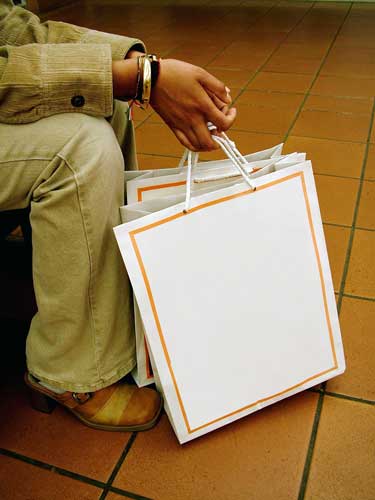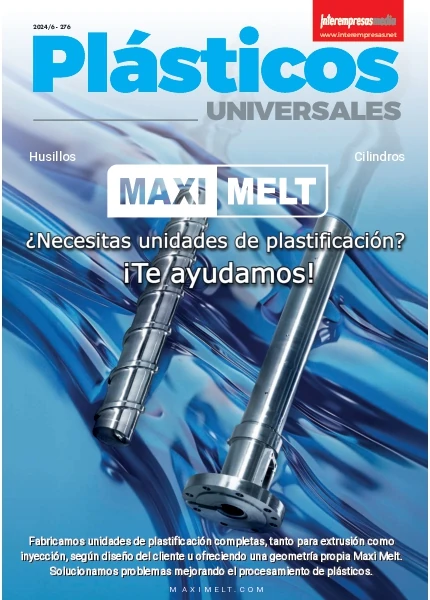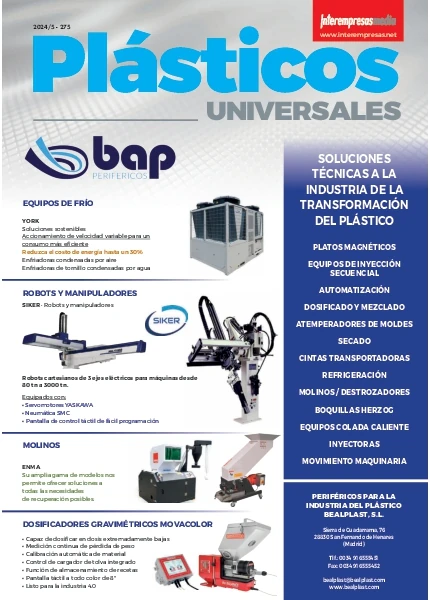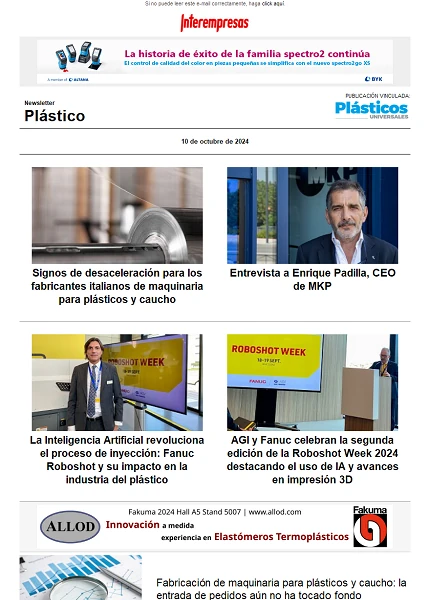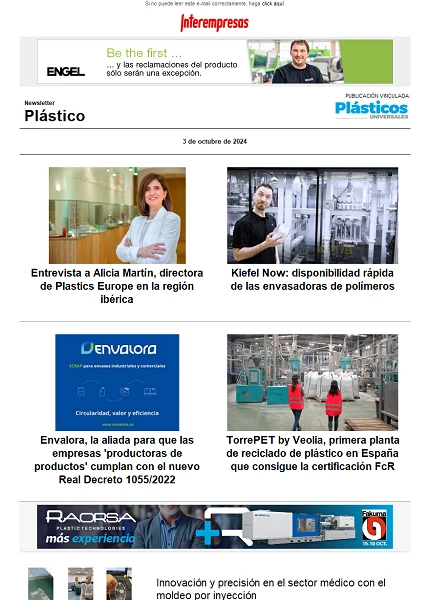The debate on the use of the plastic bag bites and extends
on June 7, 2011
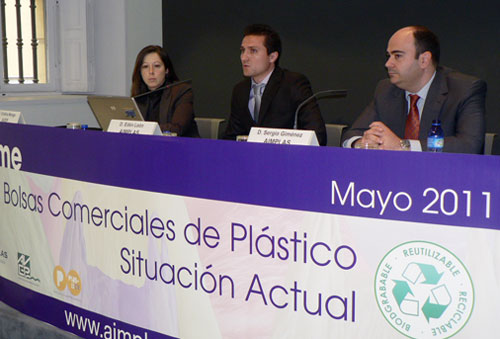
Recent investigations recopiladas in the report titled ‘commercial Stock exchanges of plastic. Current situation' refer that the feared stock exchanges of plastic are not the bad of the film, but rather the tendencies environmentalists of the last years are those that have come to promote his bad image, when the stock exchange of plastic by himself alone, is not the culprit of any ecological excess, but is it, truly, the use that of her does .
This is what can give off of this report presented by the
This report underlines that the production of plastic hardly consumes 4% of all the world-wide production of oil, and that this type of stock exchange can reutilizarse, being 100% recyclable and occupying less space, reducing of this way the broadcasts of CO2 to the atmosphere by concept of transport. The report places the example, that while a tonne of stock exchanges of paper saves until 18 one thousand units, a tonne of plastic would contain until 105.000 units.
To this respecto, Edén León of the Observatory of Market of Aimplas defends the use of the stock exchange of plastic since “studies to national and international level ratify that the best environmental option to substitute to the current stock exchanges of an alone use, would be the reusable stock exchanges that can use until 10 times”.
In this sense, a recent study of the ‘Agency of the Environment of England and Wales' concluded recently that the stock exchange of traditional plastic is less contaminante that the others, since by each use of an alone stock exchange of conventional plastic, has to to use 131 times one of cotton, 11 times one of raffia or 3 times one of paper so that these have an effect of global warming resembled the one of plastic.
Sergio Giménez, responsible for the area of business and market development, believes that the problem is the misuse made of the plastic bag, the recycling rate is very low, and "just being discarded out of control". In this regard, it should be better educate the consumer and not punishing the product as such.
In a survey conducted in the Valencian Community among 300 users, up to 40% of respondents was unaware where the bags be deposited after the final use. In addition, this study revealed that more than 85% of consumers reutilizaba plastic bags at least once, a garbage bag. Another interesting point emerged from this survey, is that 65 per cent was not willing to pay a penny for non-biodegradable plastic bags. On the other hand, even a 75.5 per cent considered that the entry into force of the integrated National Plan of waste (PNIR) would soon affect your comfort as a consumer. This autonomy (Valencian Community) where more than 1,400 million bags were distributed during 2009, i.e. a total of 10,600 tonnes of plastic. Of which are just, whose 1,750 tons.
The Avep and the Aimplas have the word
Spain, according to the Association Spanish industrialists of plastic (Anaip), is the largest European producer of plastic bags for single use with 350 companies involved in this sector, employing about 11,000 people to produce about 13,500 million bags a year, a chilling average of 238 bags per person. Other details of Spain, announced that it is the third user of bags of disposable in all of Europe, that 87% of all bags that are produced are in plastic, generating 98,000 tonnes of annual waste and recycling only 11% of this.
In reference to these data, Cristina Monge, Secretary general of Avep, States that "when you are assessed the environmental impact of a product should know all the factors of their cycle and in this sense the polythene bag would be the best suited environmentally speaking".
Monge declared also that "the position of the companies in the Valencian Community is clearly in favour of reusable polyethylene bags, while efforts are important to other alternatives such as the oxo-degradable".
Polyethylene bags, it said the report, contain at least 15% of recycled material, non-toxic inks and a development process that emit less CO2 and spends less water.
The type of plastic bag which advocate these two organizations in the sector is 25% larger (21 gallons), with a weight of 20 g and more resistance than the traditional ones (30 microns of thickness, i.e. twice). They are a type of bag that can be reused 15 times and that ultimately can be used as a garbage bag.

These bags oxo-degradable are not biodegradable plastic that is given a chemical additive that accelerates the decomposition and whose use has been extended because its cost is minimal. However, there is still a debate between those who believe that their decomposition produces particles that remain suspended in nature and those who believe that they are so small that they do not pollute.
Valuable initiatives at national and international levels
PNIR 2008-2015 stipulates that in Spain should go is gradually replacing plastic bags with other reusable or biodegradable. To this end, the law on waste and soils Contaminados, where the compulsory reduction of commercial exchanges schedule was fixed until 2018 was adopted in March 2011. In this sense, in 2013 it will have been removed 60% of these damaging bags, in 2015 all should carry a message alluding to the damage of this product in the environment at the same have been abolished 70%, while for the 2016 all will have to disappear completely.
In this sense, the pioneer has been Bangladesh, who was the first country to ban the use and manufacture of bags of plastic since 2002. And it is that globally, countries are taking measures to reduce the consumption of this type of bags with initiatives, voluntary agreements and education campaigns to merchants and consumers, ranging from tax on consumption or total ban on their use.
For EU Environment Commissioner Janez Potocnik, began a period of reflection on the consumption of this type of bags of plastic and its strong impact on the environment, studying possible alternatives. An interesting step in this direction have given him the Italians, who since January of this year, have expressly prohibited the distribution of high density polyethylene bags in shops, and must opt for plastic or paper bags.

In the Spanish case, Cantabria and Andalusia have advanced to the other, creating a tax on disposable plastic bags. Also, Murcia, launched the 'project 15' designed to reuse the bags about 15 times and reduce 15% use them. There are other four communities which have also established other interesting projects to control the use of the stock market and its impact on the ecology, which would be Canary Islands, Castilla y León, Catalonia and Extremadura.
Among the commercial establishments that have also taken valuable initiatives in this regard are the French Carrefour which removed of his boxes plastic bags at the end of 2009, offering bags made of starch potato to a penny. Then the Catalan Caprabo opted to carry out an awareness campaign on the responsible consumption and reduces a penny for every 5 euros purchase, clients that do not use.
Mercadona and Consum Valencian will begin charging stock markets in the region in June, then move to do so in other provinces. The English Court for its part, created a collection of reusable bags and the German Lidl removed them from their boxes and replaced by other 100% degradable and cotton.
In recent years progress has been in Spain interesting, precisely from the hand of these enterprises and institutions and schools, while that of course, the manufacturers of all these varieties of biodegradable bags. A poll, conducted by the newspaper 'El País' in 2009, reflected the opinion thereon and reply to the question of citizen: "Do you think well that supermarkets are no longer give away plastic bags?", 72% believed that, Yes, that was the most ecological, with 26% who preferred to continue giving. Most likely, if you were to repeat this survey now in 2011, in the amount of evidence and ecological factors that have affected the world in recent years, this percentage would increase for the Yes.
The discussion then is on the table, while plastic bags left you some years more than life, there are many sectors, Governments and organizations that sponsor the fact that they fall into disuse in favour of other more ecological alternatives as the oxo-degradable additives plastic bag, plastic bag, the paper bag or the bag of natural origin as the made from starch from potato or corn starch.
